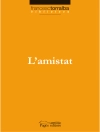A threat to humanity portending the end of our species lurks in the
cold recesses of space. Our only hope is an eleven-year-old boy.
Celebrating the long-awaited release of the movie adaptation of
Orson Scott Card’s novel about highly trained child geniuses
fighting a race of invading aliens, this collection of original
essays probes key philosophical questions raised in the narrative,
including the ethics of child soldiers, politics on the internet,
and the morality of war and genocide.
* Original essays dissect the diverse philosophical questions
raised in Card’s best-selling sci-fi classic, winner of the
Nebula and Hugo Awards and which has been translated in 29
languages
* Publication coincides with planned release of major motion
picture adaptation of Ender’s Game starring Asa
Butterfield and Harrison Ford
* Treats a wealth of core contemporary issues in morality and
ethics, including child soldiers, the best kind of education and
the use and misuse of global communications for political
purposes
* A stand-out addition to the Blackwell Philosophy and Pop
Culture series
قائمة المحتويات
Introduction: What Is Ender’s Game? 1
Part One THIRD: The Making of an Impossible Child 7
1 ‘The Teachers Got Me Into This’: Educational
Skirmishes … with a Pinch of Freedom 9
Cam Cobb
2 Illusions of Freedom, Tragedies of Fate: The Moral Development
of Ender Wiggin 21
Jeremy Proulx
3 Xenocide’s Paradox: The Virtue of Being Ender 32
Jeff Ewing
4 Teaching to the Test: Constructing the Identity of a Space
Commander 41
Chad William Timm
Part Two GAME: Cooperation or Confrontation? 53
5 The Enemy’s Gate Is Down: Perspective, Empathy, and Game
Theory 55
Andrew Zimmerman Jones
6 War Games as Child’s Play 66
Matthew Brophy
7 Forming the Formless: Sunzi and the Military Logic of Ender
Wiggin 78
Morgan Deane
8 Do Good Games Make Good People? 89
Brendan P. Shea
Part Three HIVE-QUEEN: All Together Now 99
9 Bugger All!: The Clash of Cultures in Ender’s Game
101
Cole Bowman
10 Why Ender Can’t Go Home: Philotic Connections and Moral
Responsibility 112
Brett Chandler Patterson
11 Of Gods and Buggers: Friendship in Ender’s Game
124
Jeffery L. Nicholas
Part Four WAR: Kill or Be Killed 137
12 ‘I Destroy Them’: Ender, Good Intentions, and
Moral Responsibility 139
Lance Belluomini
13 Ender’s Beginning and the Just War 151
James L. Cook
14 ‘You Had to Be a Weapon, Ender … We Aimed
You’: Moral Responsibility in Ender’s Game 163
Danielle Wylie
15 The Unspoken Rules of Manly Warfare: Just War Theory in
Ender’s Game 175
Kody W. Cooper
Part Five HEGEMON: The Terrible Things Are Only About to
Begin 187
16 Locke and Demosthenes: Virtually Dominating the World
189
Kenneth Wayne Sayles III
17 Ender’s Dilemma: Realism, Neoliberalism, and the
Politics of Power 202
Ted Henry Brown and Christie L. Maloyed
18 People Are Tools 212
Greg Littmann
Convening Authorities of the Court Martial of Colonel Hyrum
Graff 224
The Ansible Index 230
عن المؤلف
Kevin S. Decker is Associate Professor of Philosophy and Associate Dean of the College of Arts, Letters, and Education at Eastern Washington University, USA. He specializes in researching American pragmatism, Continental philosophy, ethics, philosophy in popular culture, and social theory. Professor Decker has co-edited a string of books on the links between philosophy and popular culture, including Star Wars and Philosophy (2005, with Jason T. Eberl), Star Trek and Philosophy (2008, also with Jason T. Eberl), and, with Richard Brown, Terminator and Philosophy (Wiley-Blackwell 2009).
William Irwin is Professor of Philosophy at King’s College in Pennsylvania. He originated the philosophy and popular culture genre of books as coeditor of the bestselling The Simpsons and Philosophy and has overseen recent titles including Superman and Philosophy, Black Sabbath and Philosophy, and Spider-Man and Philosophy.












